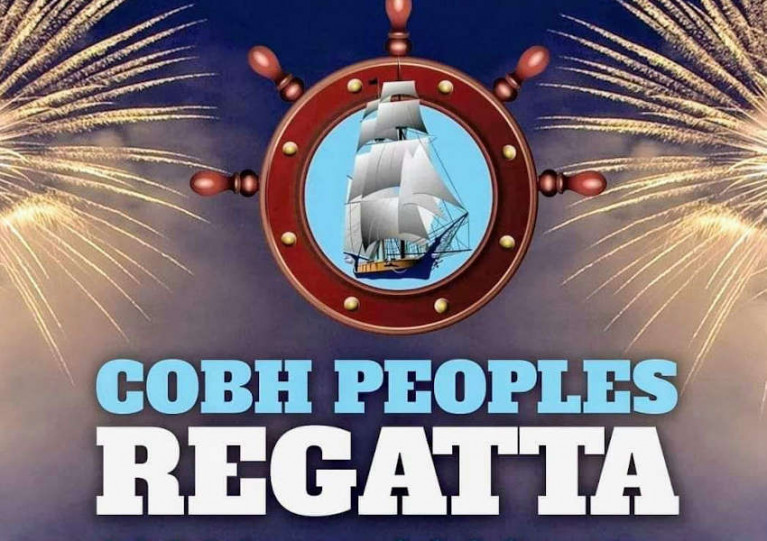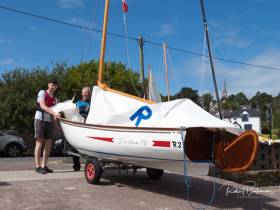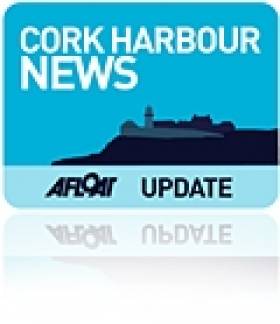Displaying items by tag: Cobh People's Regatta
Quarter Tonner Diamond is IRC Spinnaker Winner at Cobh People's Regatta in Cork Harbour (Photo Gallery)
The vintage quarter tonner Diamond (Dorgan/Losty /Marshall) was the Spinnaker IRC division winner of Cobh People's Regatta in Cork Harbour on Sunday.
The Ed Dubois design beat the Jones family J109 Jelly Baby and third was Sean Hanley's Luas.
Cobh People's Regatta results
Spinnaker IRC 1.Diamond, Dorgan/Losty /Marshall 2. Jelly BabyJones family, 3. Luas Sean Hanley
Standard class 1. DejaVu Brian Curtis, 2 Spindrift 3. Second chance, Jim O 'Meara
White sail -1st Magnet, Kieran O Brien, 2. Mazu, Denis Ellis 3. Big Deal
Cobh People's Regatta photo gallery
Cobh People’s Regatta Cancelled For 2020
Organisers of the Cobh People’s Regatta have announced the cancellation of the 2020 event.
The regatta had been due to take place from Friday 14 to Sunday 16 August in Cork Harbour, and its cancellation follows that of the Cork Harbour Festival which had been due to take place last month.
In a statement on Facebook, the organiser said: “It is with heavy heart that we must announce the cancellation of Cobh People’s Regatta 2020. From all our Committee we hope to see you all next year bigger and stronger.”
No date has been confirmed as yet for the 2021 regatta.
Blustery conditions in Cork Harbour for the Cobh Peoples Regatta meant today's dinghy division racing did not include a fine turnout of the historic Rankin class. Regatta organisers, Cove Sailing Club, who celebrate 100-years this season, will race cruisers on Sunday writes Bob Bateman.
Up to 13 Rankins assembled in a pleasant shoreside get together plus a small mix of other dinghies including a Topaz, a Feva, and a Laser 4.7 along with Commodore Kieran Dorgan and his son in a Mirror dinghy.
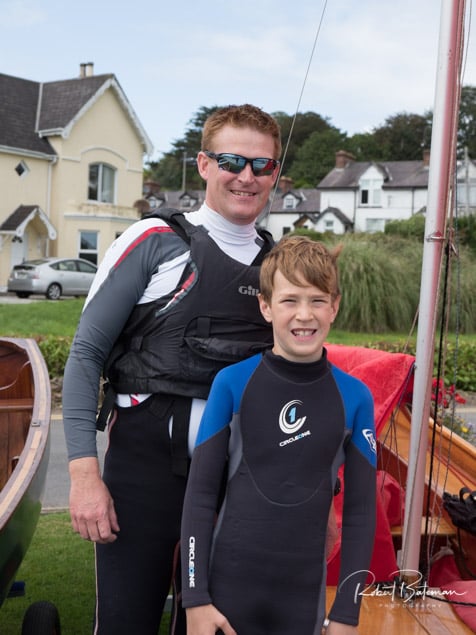 Commodore Kieran Dorgan and his son in a Mirror dinghy
Commodore Kieran Dorgan and his son in a Mirror dinghy
Photo gallery below by Bob Bateman
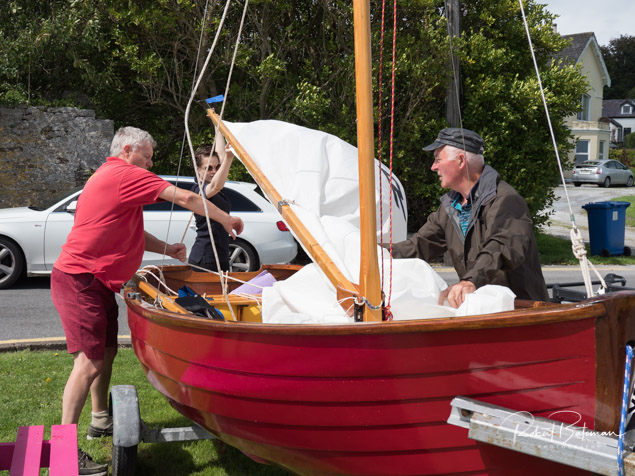
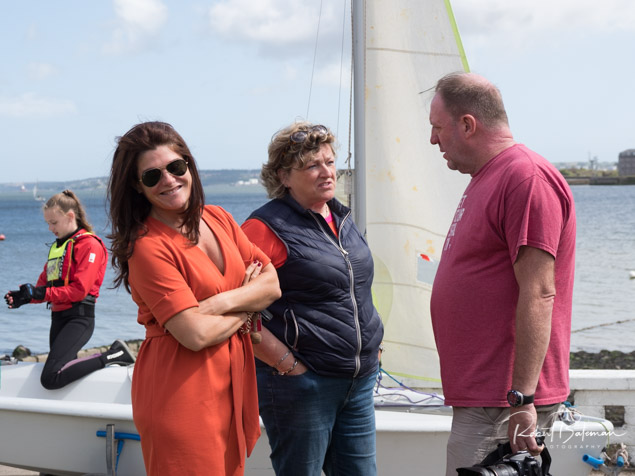
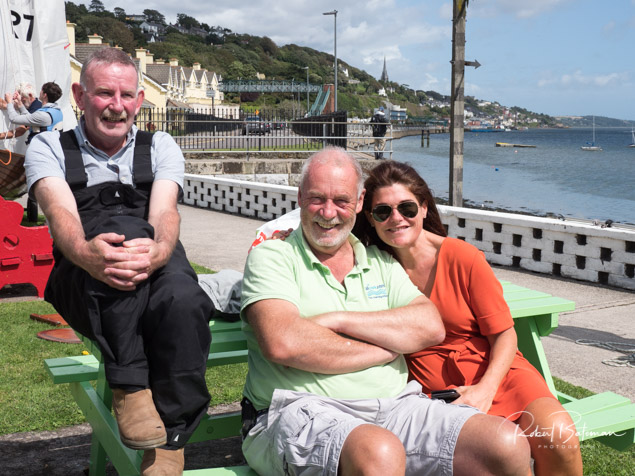 Dave O Keeffe, Eddie English and Joanna Radley
Dave O Keeffe, Eddie English and Joanna Radley
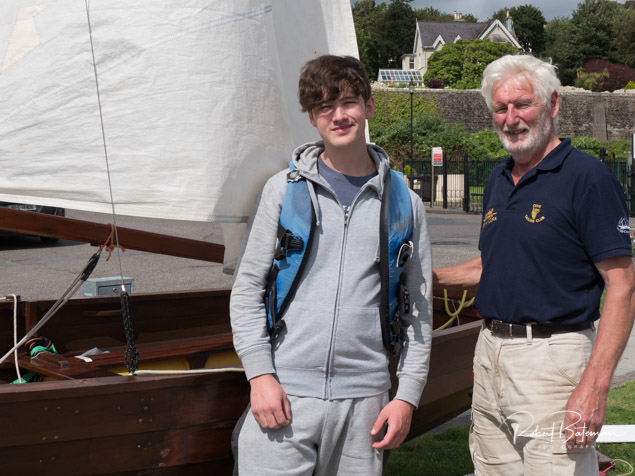 John Doyle and crew
John Doyle and crew
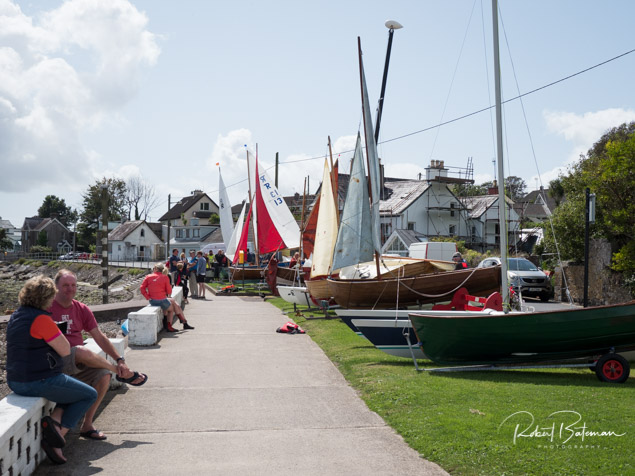
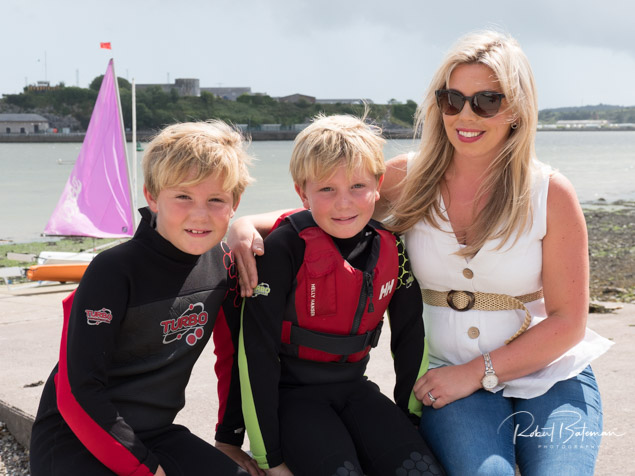 Evelyn Mills and family
Evelyn Mills and family
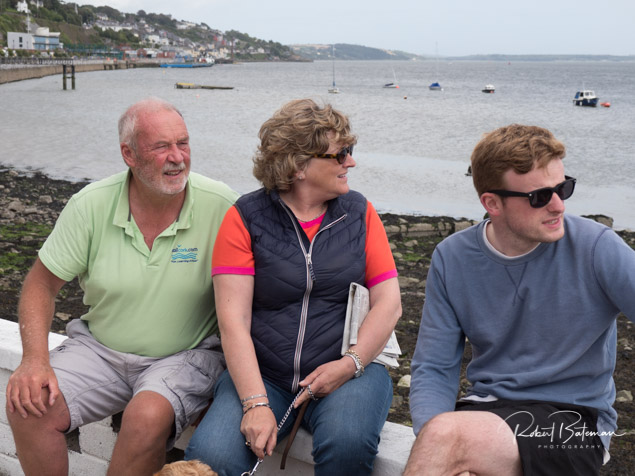 Eddie, April and Conor English
Eddie, April and Conor English
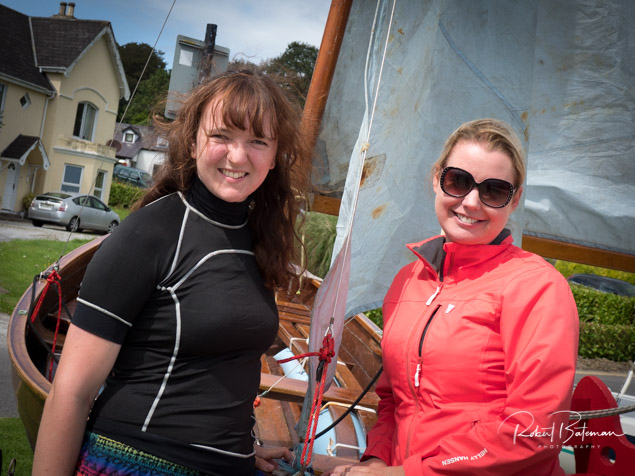
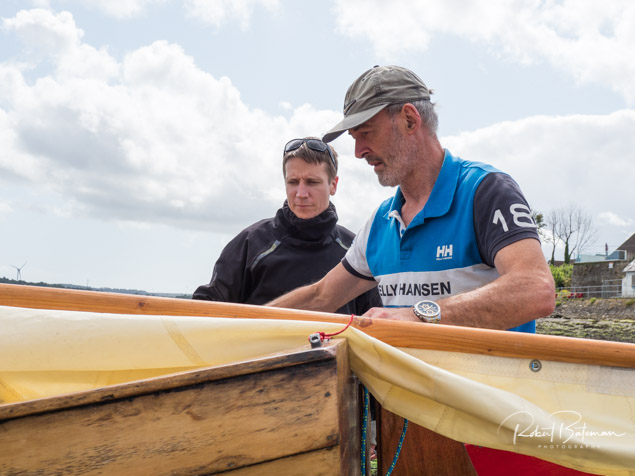 Maurice Kidney and Richard Marshall
Maurice Kidney and Richard Marshall
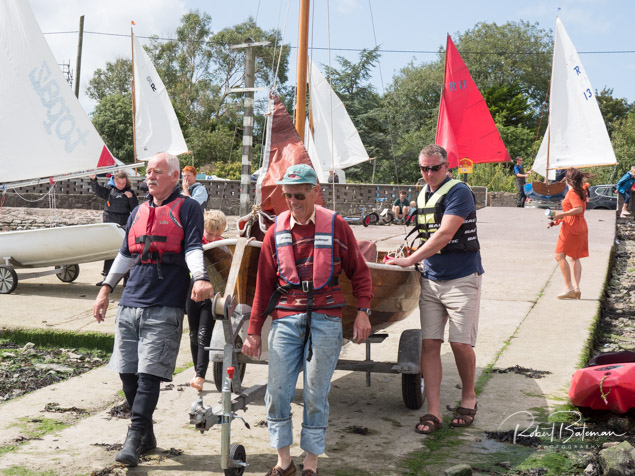
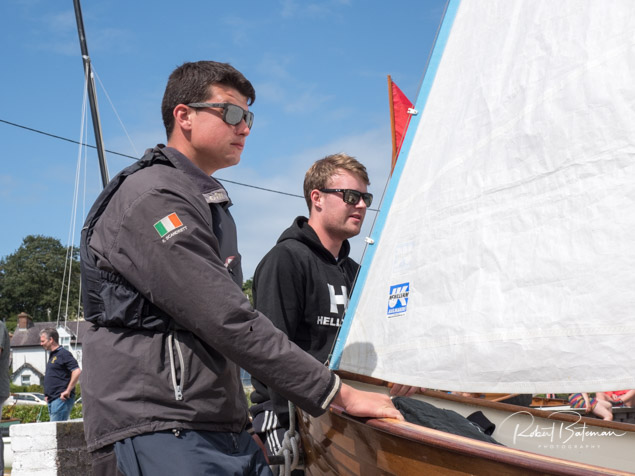 Rob Scandrett and Ewan O’Keeffe
Rob Scandrett and Ewan O’Keeffe
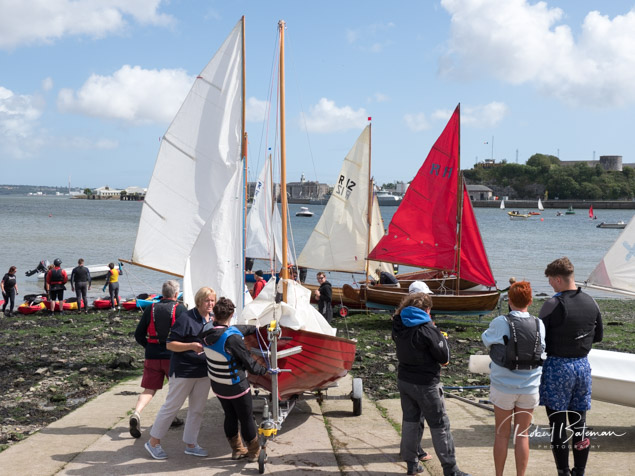
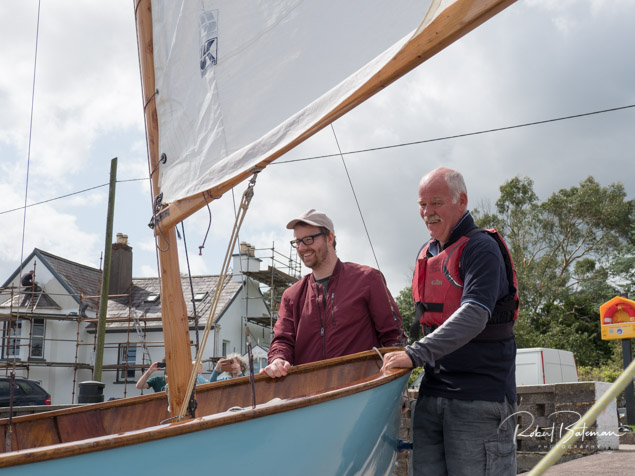
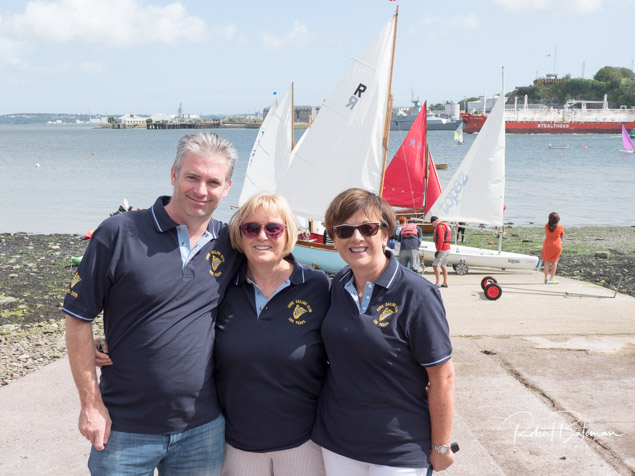 Ann Aherne and Cobh sailing club members
Ann Aherne and Cobh sailing club members
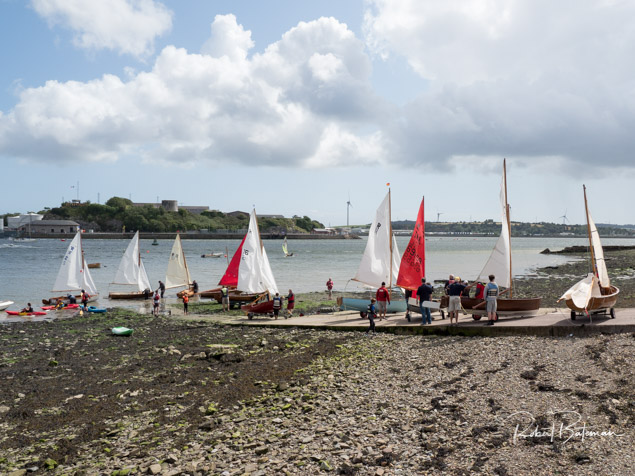
Cathedral Abseiling Challenge to Support Cobh People's Regatta
#COBH REGATTA - A parish priest is set to join a group of Cobh residents who will abseil from the turrets of the town's cathedral in an effort to save the Cobh People's Regatta.
According to the Irish Examiner, the fundraising challenge aims to support the annual regatta, which will run this year from 17-19 August.
"There are so many worthy causes out there, we needed something unique and this is it," said organiser Kathleen Geary. "I looked for an iconic building in Cobh for the abseil and the cathedral fitted the bill."
Fr Michael Leamy not only gave permission for the group to use the cathedral for the event this Saturday 4 August, but also signed up himself and is training hard with his 14 fellow abseilers at Ardmore Adventures.
Last year's regatta enjoyed plenty of wind and sunshine for the boats taking part, as reported on Afloat.ie.


























